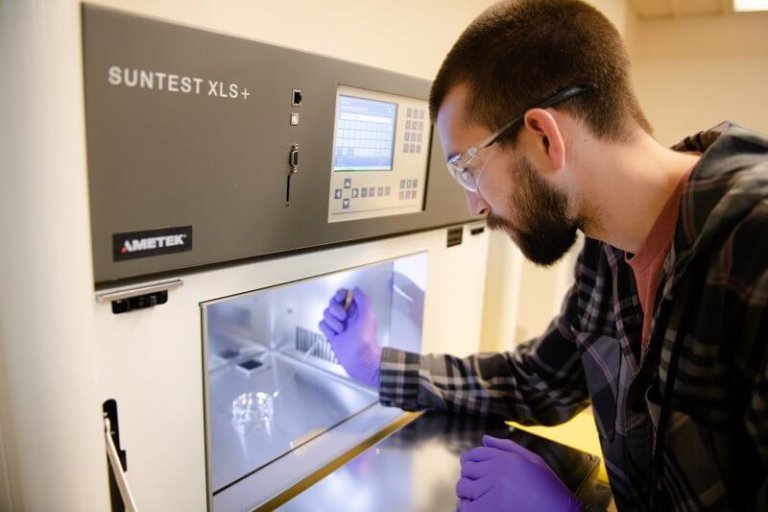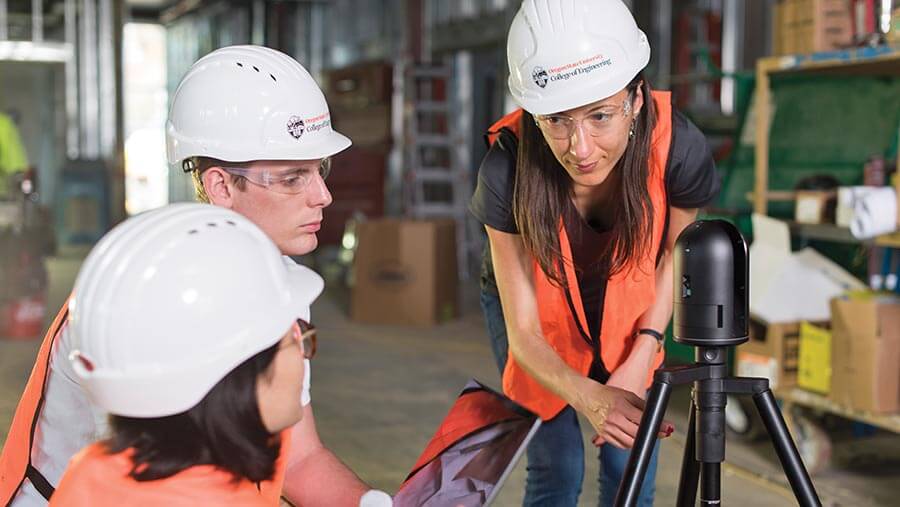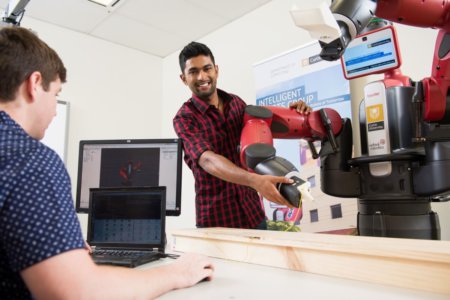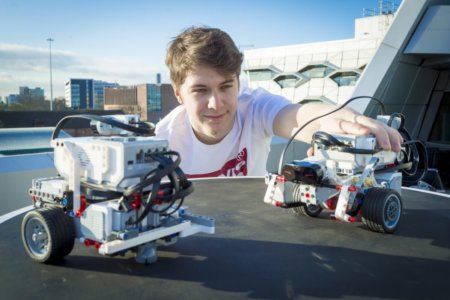
Wanted: skilled engineers to face a climate reckoning. The progress to halt the planet warming beyond repair may be on pause as we deal with a pandemic — but not the need for talent who can apply science creatively towards sustainable development. Analysts are predicting economies to rebound once vaccinations are underway. When that happens, governments, companies and third sector organisations will be on the lookout for sustainable engineering experts.
This refers to those with the scientific know-how to design or operate systems that use energy and resources at a rate that does not compromise the natural environment or the future generation’s capability to meet their own needs. It’s a vital role.
Professional engineers in sustainable development work to improve our quality of life, welfare, health and safety. They come up with solutions that minimise environmental impact. They maximise the sustainability of natural resources. They design or develop structures, machines, apparatus, or manufacturing processes, or works utilising them singly or in combination towards these ends.
The knowledge, competence and aptitude for the above exercise can be found with the right degree. At the following universities, you’ll find the sustainable engineering programmes that fit this bill:
Michigan Technological University: Department of Civil & Environmental Engineering

Source: Michigan Technological University, Department of Civil and Environmental Engineering
The Department of Civil and Environmental Engineering at Michigan Tech offers an educational, professional, and intellectual experience that engineers a better world. Here, students receive unique opportunities leading to keen insight of their discipline, a change-ready foundation and the zeal to improve humanity’s condition.
Graduate studies in civil engineering — MS in Civil Engineering; MS in Civil Engineering — Online Program; and PhD in Civil Engineering — address critical social needs. They blend theory, practice, creativity, and hard work. Students can take part in multidisciplinary research and sustainability initiatives. The result is excellence — this graduate program is ranked in the top 50 nationally by US News & World Report, with a track record of significant contributions to society and the profession through teaching, research, and practice.
The MS in Environmental Engineering and PhD in Environmental Engineering provide a deeper understanding of how human systems impact the natural environment and how to engineer systems to protect human health and ecosystems. What sets Michigan Tech’s offerings in this discipline apart is its emphasis on sustainability. Here, students get to work on interdisciplinary research projects and with faculty in the areas of biological sciences, chemistry, forestry, geological engineering and sciences, chemical and mechanical engineering, and environmental policy.
The Department also offers an MS in Environmental Engineering Science and an MS in Integrated Geospatial Technology. Want to take steps towards a masters degree? Consider an online graduate certificate in areas of structures, water resources, sustainable pavement design, and geoinformatics. Learn more about the certificates here. To learn more about how engineering students at Michigan Tech get a headstart in sustainable development, transportations systems of tomorrow, beneficial infrastructure, and social change while still in school, click here. Don’t forget to submit your free application now to begin your Michigan Tech educational journey!
University of Florida, Engineering School of Sustainable Infrastructure & Environment

Source: University of Florida, Engineering School of Sustainable Infrastructure & Environment
The Engineering School of Sustainable Infrastructure & Environment (ESSIE) offers a suite of broad-based, yet cutting-edge civil, coastal, environmental and oceanographic programmes.
At the undergraduate level, you can choose from two programmes accredited by the Engineering Accreditation Commission of ABET: BS in Civil Engineering and BS in Environmental Engineering. You can combine a master’s degree to both, via a “4-1 Programme” where you may double-count graduate course credit to accelerate progress toward a master’s degree.
At the postgraduate level, you can apply to three major disciplines: Civil Engineering, Coastal and Oceanographic Engineering, and Environmental Engineering Sciences. Each is underpinned by ESSIE’s excellence in teaching, research, leadership, innovation, and entrepreneurship.
What sets ESSIE’s programmes apart is its synthesis and merging of all of its unique qualifications and its positioning. This places it at a prime spot to address the new research on coastal, environmental, infrastructure and community needs, whether in Florida or beyond to other coastal states within the Southeastern Coastal Plain (including the Gulf Coast and Atlantic seaboard states) and other countries (such as Italy, the Netherlands or Australia) where the coastal interface supports civil infrastructure systems, a sustainable environment of air/water/terrestrial/ecological resources, and human communities.
University of Texas at Austin, Department of Civil, Architectural and Environmental Engineering

Source: University of Texas at Austin
The Department of Civil, Architectural and Environmental Engineering was established more than 100 years ago with only two faculty and a small but dedicated group of students. It has come a long way since.
It is now the one of the largest, most extensive civil engineering departments in the nation, with 10 graduate specialties: Building Energy and Environments; Construction Engineering and Project Management; Environmental and Water Resources Engineering; Geotechnical Engineering; Infrastructure Materials Engineering; Mechanics, Uncertainty and Simulation in Engineering; Ocean Engineering; Structural Engineering; Sustainable Systems; and Transportation Engineering.
More than 10,000 living alumni, over 1,200 students, and over 50 faculty members are recognised worldwide for the distinctive UT Austin excellence in engineering education, knowledge creation and public service. Programmes — undergraduate and graduate — are ranked in the top five in the country by US News and World Report.
“It is an exciting time to be in Civil, Architectural and Environmental Engineering at UT Austin,” says department chair Robert B. Gilbert. “What we do has become important and challenging as the world population grows in the face of expanded urbanisation, limited resources and changing climatic conditions. We are leading major changes in energy, transportation, water management and treatment, sustainable construction and materials, and information technology.”
Oregon State University, College of Engineering

Source: Oregon State University, College of Engineering
More than 40 world-class faculty members. US$8.5 million research expenditure. Almost 800 international graduate students comprising about 60% of the graduate programme. Ten areas of concentration including architectural engineering, construction engineering management, engineering education, geomatics, geotechnical engineering, infrastructure materials, coastal and ocean engineering, structural engineering, transportation engineering, and water resources engineering.
The Oregon State University College of Engineering is dedicated to addressing some of the world’s most complex engineering challenges — from climate change to economic instability. Here, students and faculty members combine curiosity, compassion, and intellect to create breakthroughs that help us live better lives.
“The teachers here inspire and motivate you to study. You use your problem-solving skills to solve real-life challenges,” shares Alisha Saduova, a PhD candidate from Kazakhstan focusing on pavement design and the mechanics of fluids.
Programs and clubs such as Formula SAE and Engineers Without Borders make OSU students career-ready. Whereas high-impact research at the undergraduate and graduate levels — from safer bridge designs to next-generation robots — ensure OSU graduates have the skills and expertise that put them in a highly competitive position.
“We have one of the best programmes in the nation. We have luminary professors that give us all the things we need to train our thought process, to train how to do problem solving,” says Yunteng Huang, PhD Electrical Engineering graduate.
*Some of the schools featured in this article are commercial partners of Study International









